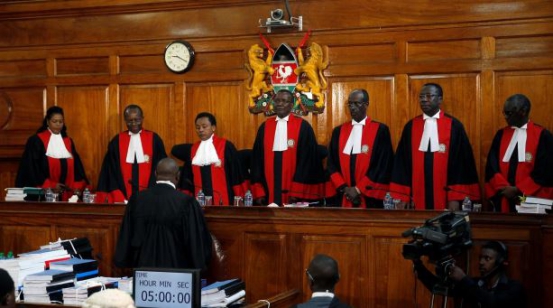
On September 1, 2017, and September 20, 2017, a divided Supreme Court gave two decisions affecting national well-being. First, by a majority four decision, the court nullified the presidential election.The second decision was to provide a way forward arising from the nullification.
The court ordered IEBC to organise “fresh” elections within 60 days and also warned that it would nullify the “fresh” election if the same failures were to recur. President Uhuru Kenyatta did not like the nullification part, complained that the judges had trashed the collective will of the Kenyan voters, and then grudgingly accepted the verdict.